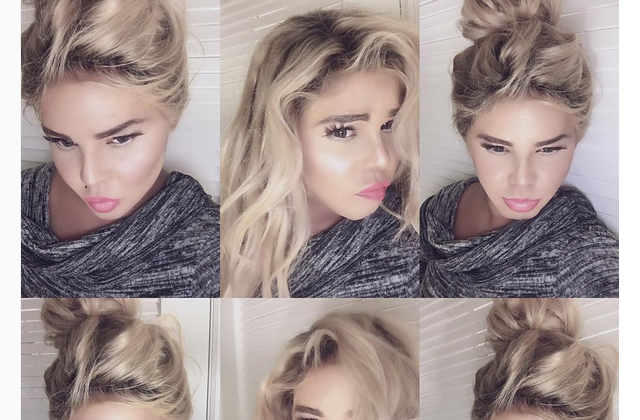You don’t have to follow Lil’ Kim on Instagram to have marveled at a series of photos she posted on Sunday (April 24) in which she is virtually unrecognizable. From her reshaped features, to her seemingly lightened skin to her long blonde hair, she looks more like a White woman than her circa ’96 “No Time” brown-skinned self.
It was that now-infamous set of photos that prompted Yaba Blay, Ph.D. to write an illuminating essay on the issues—from colorism to racism to beauty standards that center Whiteness—that likely lead to Kim’s transformation.
Read a few key passages below, then go read the essay in full on The Daily Beast.
On colorism around the world:
“Online, we’re trying to make sense of it (she has yet to say anything herself), wondering why she would do this to herself; yet we already we know why. We live in the same world she does. And all over that world, people of color use a variety of chemicals to lighten the complexion of their skin. In fact, wherever there are people of color—Southeast Asia, Latin America, the Caribbean, Africa and the United States—there is skin bleaching.
In places where the majority of the population has browner or darker skin, wearing relatively lighter skin provides social advantage; and for women particularly, the social advantage that comes with having lighter skin is being seen, and thus treated, as more beautiful and attractive.”
On how White culture impacts Black women:
“Hers is an image that reminds us of the pervasive and insidious power of Whiteness. We, as Black women and girls, are assaulted by it every day. We’re told our skin is too dark, our hair is too kinky, our bodies are too big. We’re given options to change all of those things about ourselves—from skin lighteners, to chemical hair relaxers, to waist-trainers—yet so many of us resist.”
On why hip-hop is complicit:
“Added to society’s overall privileging of lighter skin, the music industry sends equally pointed messages about Black women’s desirability with most visual renderings of popular music requiring that women be so light that they are essentially racially ambiguous: the less Black looking, the more desirable.”
